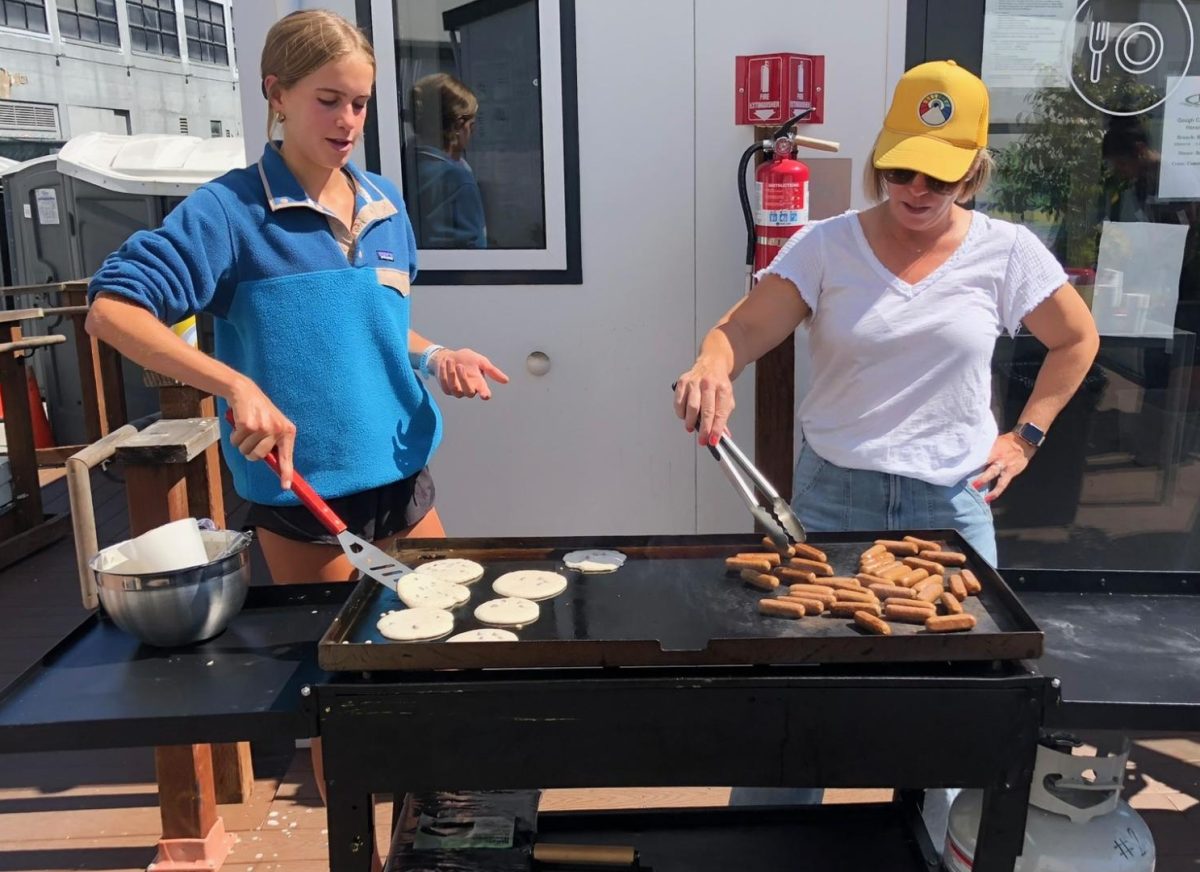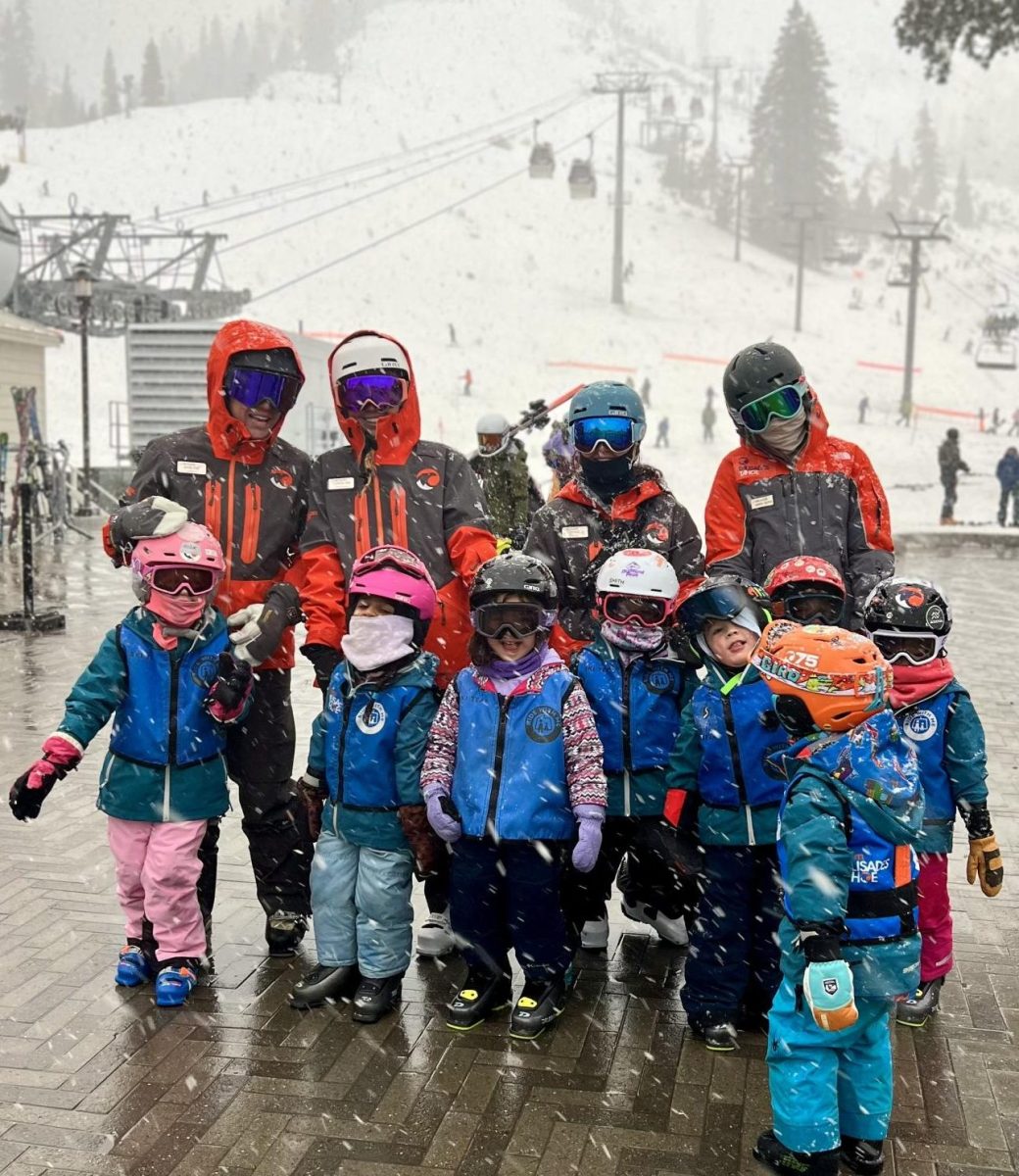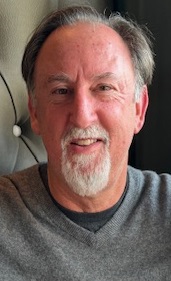As Michael Schwartz received his positive audition results for the San Francisco Jazz High School All Stars Orchestra, he remembered why he dedicates countless hours to practicing the saxophone, the instrument that got him into San Francisco’s professional music scene.
Schwartz has been playing the saxophone since he was 11 years old, and spends five to six hours rehearsing each day. Perhaps it was this work ethic that landed him the best spot possible out of those he auditioned for in the SF High School All Stars Orchestra this year.
The orchestra is composed of 26 high school jazz musicians who are selected annually, including Redwood juniors Schwartz and Jason Seavey.
“SF Jazz High School All Stars is sort of an organized conglomerate of every single amazing jazz musician in the Bay Area, all the way from Walnut Creek to San Jose, up to Sonoma, and everybody in between,” Schwartz said.
Schwartz primarily plays the tenor saxophone, but has also branched out to other instruments.
“I also double on flute and clarinet because when you’re in these bands they want certain effects or sounds, like the flute and clarinet, and they don’t want to hire other people,” Schwartz said. “They make the original musicians play the new instruments, which is sometimes challenging.”

This year will mark Schwartz’s second year in the orchestra.
“A lot of what I do is sort of partitioned into the technique of my playing: getting my fingers to play really fast, sometimes, twenty notes a second fast, playing the right notes, and then also just being able to play music and get into the mindset the best way possible,” Schwartz said.
As a returning musician to the SF Jazz High School All Star’s Orchestra, Schwartz was familiar with the difficult audition process.
The SF Jazz High School All Stars auditions are listed as taking only ten minutes, where judges assess the musicians based on technique, familiarity with jazz music, sight reading, and improvisational ability. In addition, they expect musicians to have between five to seven years of musical experience with their instrument, as well as three years of experience playing jazz.
“At the auditions they want to make sure you know how to play music by yourself without the aid of or accompaniment of a rhythm section, and so they make you play a cappella,” Schwartz said. “It used to be really challenging for me, but you get used to it over time.”
The rigor of the audition process is also intensified by the improvisational aspect in jazz music. According to Schwartz, this component distinguishes it from other genres of music.
“In jazz, instead of there being a set melody or several choruses that are played over an entire song, [there] is a basic framework for the melody and chord changes. You play the melody once, and then you’re supposed to improvise and come up with your own sort of material,” Schwartz said.
Schwartz said he thinks about 200 musicians audition for the orchestra each year.
In addition to his recent acceptance to the SF Jazz High School All Stars Orchestra, Schwartz has made his mark on a variety of musical groups around the Bay Area, including the Redwood music program.
“I play for a bunch of different bands. The main two that I played for last were the San Francisco High School All Stars and the Jazz School Studio Band which is over in Berkeley,” Schwartz said.
However, Schwartz views the SF Jazz orchestra as the most prestigious among the bands he has played for because of its performance opportunities, which include playing for professional jazz clubs, festivals, and community events throughout California. In addition, the orchestra was able to play at a gala for renowned jazz musician Herbie Hancock last year.
Schwartz said that he plans to utilize all the opportunities that both the orchestra and San Francisco provide for him.
“The really great thing about San Francisco Bay Area is that unlike a lot of other places, there’s a really great musical scene here, and there are a lot of really motivating musicians,” Schwartz said.
Schwartz said that he is not sure what path his music career will take him on in the future, but if nothing else he wants to continue to play music in his free time.
“I don’t really have any specific idea of what I want to do after I graduate in terms of music because a lot of musical professions are pretty poorly paid,” Schwartz said.






